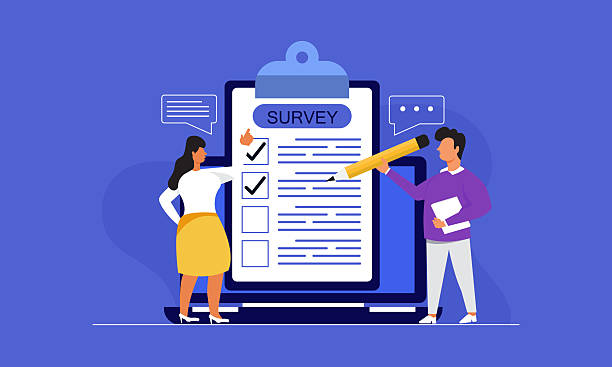Why Do You Need Custom Website Design?
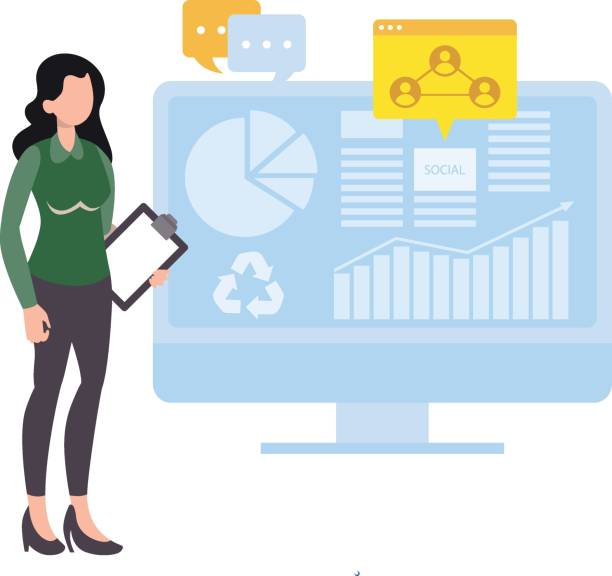
In today’s digital world, where business competition for customer acquisition has reached its peak, a strong and distinct online presence is more vital than ever.
This presence is not limited to having a page on popular social networks but requires a website platform that can best reflect your identity, values, and goals.
Custom website design, beyond a simple need, is considered a strategic and long-term investment for the future of your business.
Faced with a flood of information and countless choices for consumers, the ability to differentiate yourself from competitors is of high importance.
General solutions and ready-made templates, although useful for starting out, are often incapable of providing the unique features, flexibility, and scalability required by a growing organization, and cannot meet complex and specific business needs.
A custom website allows you to control every part of the user experience and build it exactly according to your audience’s needs and business goals.
This approach ensures that your site is not only visually attractive and appealing but also fully optimized functionally and possesses the necessary flexibility for adding new features and future development.
Unlike template-based sites, which often have limitations in design, features, and optimization and can hinder growth, custom website development gives you complete freedom to implement any feature you think is beneficial for your business.
This includes custom content management systems (CMS) designed precisely for your needs, specific customer interaction tools, advanced user portals, or even complex and scalable e-commerce functionalities.
This level of personalization empowers you to create an unparalleled user experience for your customers, leading to increased satisfaction and loyalty.
Furthermore, choosing a custom website design demonstrates your seriousness, professionalism, and commitment to providing the best customer experience.
This directly affects audience trust and their perception of your brand, creating a strong and authoritative image of you in their minds.
A custom site can perform better in search engines and attract more organic traffic with specific optimizations for speed, security, and SEO.
This initial investment, in the long run, will be compensated by increased operational efficiency, improved user experience, higher conversion rates, and ultimately sales growth and enhancement of your brand’s position in the digital market, bringing you a sustainable competitive advantage.
Research shows that 80% of customers trust companies with professional websites more. Does your current site inspire this trust?
With Rasaweb’s corporate website design services, permanently solve the problem of customer distrust and a weak online image!
✅ Create a professional image and increase customer trust
✅ Attract more sales leads and business growth
⚡ Get free consultation
The Difference Between Custom Website Design and Ready-Made Templates
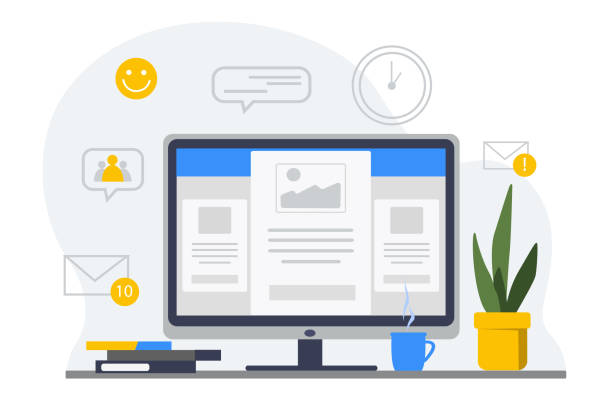
Custom website design versus ready-made templates is a key discussion in the field of web development, and a precise understanding of it is essential for making the right decision for your business.
Ready-made templates, often built on popular content management systems like WordPress, Joomla, or Drupal, appear to be a quick and cost-effective option.
By offering a default structure and basic features, they quickly make a website available and can be a suitable starting point for small businesses with limited budgets or simple needs.
However, this speed and simplicity often come with limitations; these templates often lack the necessary flexibility to implement specific features or unique branding designs.
They are designed to meet general needs, not the precise and specific needs of a business.
In contrast, a custom web platform is designed and coded from scratch, taking your precise needs into account.
This approach means complete control over every component, from the site’s look and feel to complex functional capabilities.
The main difference is that ready-made templates are designed for a wide range of users, whereas custom website design is optimized precisely for your business and has no extra or unnecessary code.
This optimization includes higher loading speed, unparalleled user experience, and advanced security features that might be overlooked in ready-made templates or require additional plugins, which themselves can reduce performance and increase vulnerability.
Furthermore, SEO optimization is often more efficient on custom sites because they have cleaner and more optimized coding, allowing for the implementation of more advanced SEO structures.
This analysis shows that although ready-made templates are suitable for small beginnings or projects with standard needs, for businesses seeking sustainable growth, creating a powerful digital identity, and differentiating themselves from competitors, custom website development is the best choice.
The initial investment in a custom website will yield significant returns in the long run by providing a superior user experience, increased flexibility and scalability, and the possibility of implementing any unique feature, helping you achieve your business goals.
Key Stages in Custom Website Design
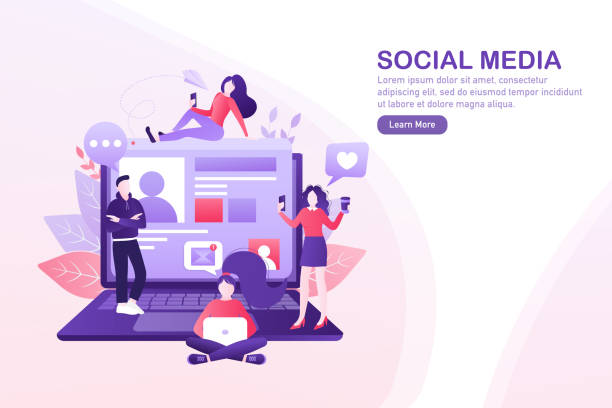
The custom website design process is a complex, multi-stage project that requires precise planning, high technical expertise, and continuous, transparent collaboration between the client and the development team.
These stages proceed logically and step-by-step to ensure that the final product perfectly aligns with the business’s expectations, goals, and specific needs, and can best serve its commercial objectives.
The first, and perhaps most important, stage is typically analysis and information gathering; in this stage, needs, short-term and long-term goals, target audience (personas), and a detailed competitor analysis are thoroughly examined.
These data form the foundation for all subsequent decisions and define the project roadmap.
After that, the User Experience (UX) and User Interface (UI) design stage begins; in this step, blueprints and wireframes (initial schematic images of the site) are created, and then the site’s visual design, including the selection of colors, fonts, images, and graphic elements, takes shape.
This stage is crucial because it determines the overall feel and appearance of the site and directly impacts user interaction with the site.
The next stage is development and coding, where graphic designs are converted into executable code, and all required functionalities and business logic are implemented.
Development includes the front-end (what the user sees and interacts with) and the back-end (the logic and database behind the scenes that power the site).
In this stage, up-to-date technologies and best coding practices are used to create a high-performance and secure website.
After coding, it’s time for comprehensive testing and debugging to ensure the site functions correctly across all browsers, devices (mobile, tablet, desktop), and user scenarios.
This stage includes performance, security, compatibility, and user experience testing.
Finally, the site is uploaded to the server and officially launched.
But the work doesn’t end here; after launch, the support and maintenance phase continues to ensure stable performance, security updates, and the addition of new features in the future.
These stages ensure that the custom website development project proceeds as best as possible and results in the creation of a powerful and effective digital product.
| Stage | Description | Main Output |
|---|---|---|
| Analysis and Planning | Identifying business needs, goals, and target audience, comprehensive data collection. | Requirements document, sitemap, information architecture |
| Design (UX/UI) | Creating wireframes, mockups, and graphic design for an attractive and user-friendly interface. | Wireframes, prototypes, final graphic designs |
| Development and Coding | Converting designs into HTML, CSS, JavaScript code and implementing front-end and back-end sections. | Complete source code, database, developed modules |
| Testing and Evaluation | Checking performance, compatibility across different platforms, and resolving bugs and issues. | Comprehensive test report, list of fixed bugs, performance report |
| Launch and Support | Uploading the site to the server, final configuration, and providing continuous support after launch. | Active and online site, support contract, maintenance plans |
The Importance of User Experience (UX) in Custom Design
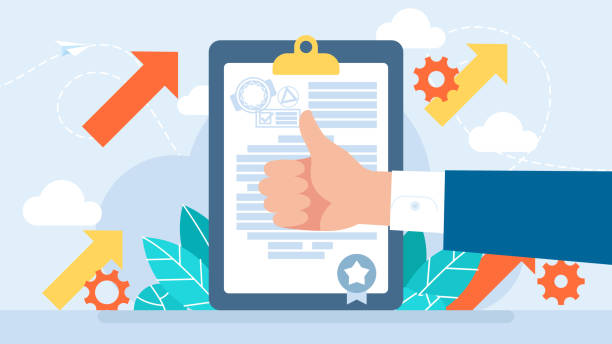
User Experience (UX) plays a vital role in custom website design and goes beyond a mere secondary aspect of site design; it is the heart of your site’s interaction with visitors and a determining factor in its success.
A website with an excellent user experience not only looks beautiful but is also easy, enjoyable, and seamless to interact with.
This means users can easily find the information they need, quickly achieve their goals (e.g., buying a product or filling out a form), and ultimately have a positive experience on your site, encouraging them to return and become loyal customers.
In the process of custom website design, UX professionals, with a deep focus on the needs and behaviors of the target audience, design the site structure, navigation (menus and links), and content layout in a way that brings maximum efficiency and satisfaction to the user.
This includes things like designing easy-to-use contact forms with clear fields, clear and hierarchical menu structures, fast page loading times to prevent user fatigue, and full compatibility with various devices (responsiveness).
The main goal is that the user never feels confused or frustrated at any point of interaction with the site.
The better the user experience, the higher the conversion rate will be; for example, if your goal is product sales, users with good UX will be more inclined to browse products and complete the purchase process.
A strong UX also helps reduce the bounce rate, as users spend more time on your site and view more pages.
Ignoring UX can lead to user confusion, high bounce rates, cart abandonment, and ultimately lost business opportunities and revenue decline.
In fact, a site with stunning visual design but poor UX is like a luxury car without a steering wheel that cannot reach its destination.
Therefore, investing in UX-centric web design is one of the main pillars of success for any web project, especially when building specific internet platforms, to ensure that your site is not just a beautiful storefront, but a powerful and effective tool for attracting, retaining, and converting customers, continuously creating value.
Did you know that customers’ first impression of your company is your website? Multiply your business’s credibility with a powerful corporate website from Rasaweb!
✅ Custom and eye-catching design tailored to your brand
✅ Improve user experience and increase customer acquisition
⚡ Get a free consultation!
Search Engine Optimization (SEO) in Custom Websites
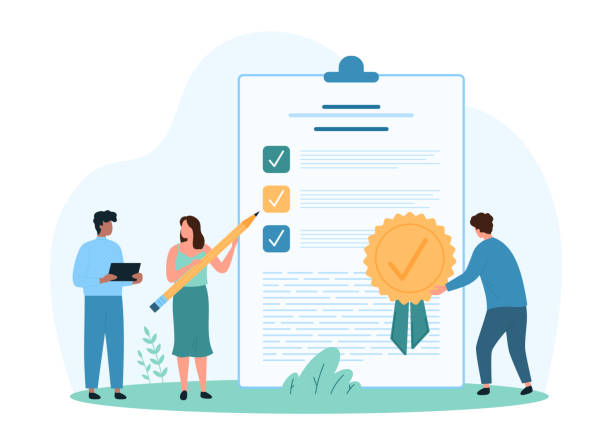
Search Engine Optimization (SEO) is a critical factor for the success of any website in attracting organic traffic and gaining visibility online, but its importance is doubled when it comes to custom website design.
A custom site, due to its clean, lightweight coding and flexible structure, has higher potential for more precise and effective optimization for search engines like Google.
While ready-made templates might come with extra and unnecessary code (also known as bloatware) that can slow down the site and make it difficult for search engine crawlers, a custom website platform allows for design and development with the best SEO practices in mind from the very beginning.
This includes precise page loading speed optimization using advanced techniques, correct and optimal use of heading tags (H1-H6), meta descriptions, and alt tags for images, creating a user-friendly and hierarchical URL structure, and ensuring full site responsiveness for proper and optimal display on all devices (desktop, mobile, tablet).
Furthermore, the ability to add high-quality and relevant content aligned with target keywords and organize it in a logical and user-friendly manner is a distinct advantage of creating a unique website.
This approach helps search engines better understand your content and assign you a higher position in search results rankings.
SEO strategy in a custom site allows for the implementation of structured data (Schema Markup) in a deeper and more precise way, leading to better display in search results (Rich Snippets) and increased click-through rates (CTR).
Optimizing images, CSS and JavaScript files, and creating an XML sitemap are other aspects that can be controlled with greater precision in a custom site.
Ultimately, strong SEO in a custom website helps you achieve a better ranking for competitive keywords and have a more prominent and effective online presence, which in turn means greater visibility, attracting more potential customers, and ultimately increasing revenue and brand credibility.
Security and Maintenance of Custom Websites

Custom website security and its regular maintenance are integral and vital parts of the longevity, stability, and success of any website in a digital world full of cyber threats.
A custom website platform, despite its high flexibility and control, requires special attention to security issues.
Unlike general content management systems that are targets of broader attacks due to the prevalence of their vulnerabilities, a custom site might be subjected to more targeted attacks if sufficient and advanced security measures are not implemented.
Therefore, in the process of custom website development, implementing strong security protocols from the very initial stages of design and coding is crucial.
These measures include using SSL/TLS certificates for encrypting sent and received data, strong encryption for sensitive information in the database, implementing robust firewalls (WAF), and regular security updates for all site components (including coding libraries and the server).
Furthermore, educating employees on cybersecurity best practices, such as using strong passwords and recognizing phishing emails, is also important.
Intrusion detection systems and continuous monitoring to identify any suspicious activity should also be active.
Site maintenance is equally important; this includes regular and automated backups of all site data and code in secure locations, monitoring site performance and loading speed, updating codes, plugins, and frameworks (if used), and promptly resolving any technical issues or potential bugs.
A website that is not properly maintained may face performance issues, serious security vulnerabilities, decreased search engine rankings due to unresponsiveness or slow speed, and even loss of valuable user data.
These preventive measures not only protect your site against threats and prevent financial and reputational losses but also ensure optimal performance and a stable user experience.
A secure, fast, and up-to-date website attracts visitor trust and protects your brand’s credibility, which is very valuable in today’s challenging and competitive world and significantly contributes to your business’s survival.
Choosing the Best Company for Your Custom Website Design
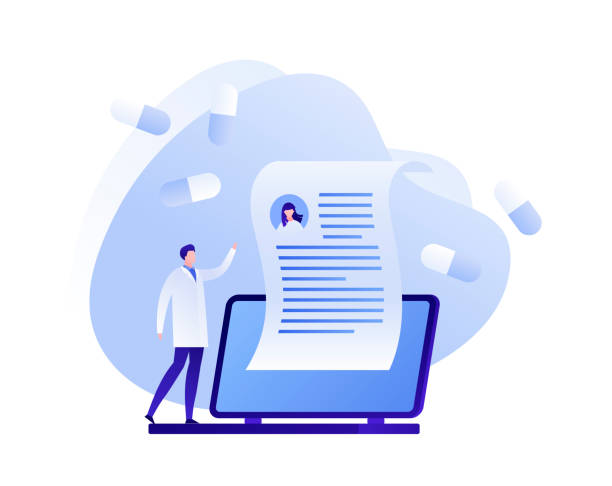
Choosing the right web design company for your custom website development project is one of the most important and critical decisions you will make, as this choice can determine the fate of your online success.
The market is full of different companies with varying specializations, prices, and approaches, so how can you find the best option for your specific and unique needs? First, you should look at the company’s portfolio and track record.
Have they successfully completed similar projects? Does the quality of their previous work align with your standards, and is there enough variety in their projects? Reviewing their portfolio gives you a clear insight into their design style and the team’s technical capabilities.
Second, pay attention to the technical expertise and the development team.
Do they have sufficient knowledge and experience in the technologies required for your site (such as specific programming languages, databases, or frameworks)? A team with diverse and up-to-date skills can provide innovative and scalable solutions.
Third, communication and transparency in collaboration are of high importance.
Choose a company that answers your questions transparently, keeps you informed about project progress, provides regular reports, and offers adequate support after launch.
Effective communication and mutual trust are key to the success of any software development project.
Fourth, consider the budget and timeline; ensure that the chosen company can complete the project within your financial and time constraints, without sacrificing quality.
Receiving a detailed and transparent proposal with full cost and timeline breakdowns is of high importance.
Finally, pay attention to the reputation and reviews of previous clients.
A company with an excellent track record and high customer satisfaction will be a more reliable choice.
You can gain valuable information through the company’s website, social media, or even direct contact with their previous clients.
These guidelines will help you find a suitable partner for building your custom online platform who can turn your vision into reality and accompany you on your path to achieving your business goals.
| Evaluation Criterion | Importance | Key Points to Check |
|---|---|---|
| Portfolio and Track Record | Very High | Reviewing similar projects, design and performance quality, project diversity. |
| Team’s Technical Expertise | High | Deep knowledge in current technologies, coding skills, experience with various platforms. |
| Communication and Transparency | Critical | Prompt responsiveness, regular reporting, honesty in service delivery, post-delivery support. |
| Budget and Timeline | High | Compliance with project financial and time constraints, transparent pricing proposal. |
| Client Reviews | Important | Checking feedback and testimonials, company’s reputation in the market and online community. |
Innovative Features in Custom Website Design
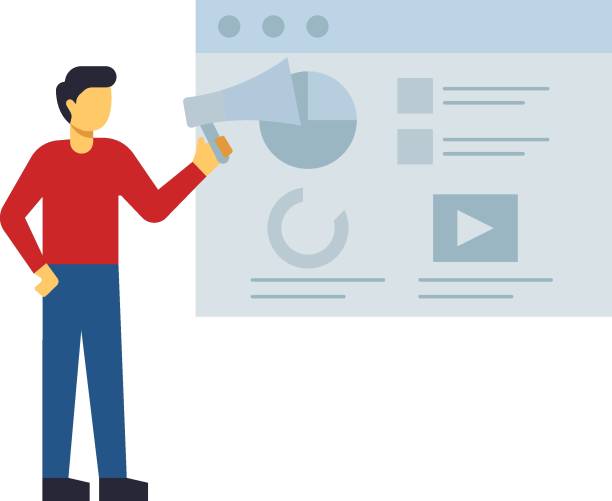
Custom website design offers a unique opportunity for innovation and implementing features that can differentiate your website from competitors and create an unforgettable user experience.
This field is constantly evolving and progressing, and with the emergence of new technologies, innovative features can elevate the user experience to a new level and optimize customer interaction.
For example, implementing Artificial Intelligence (AI) for responsive and intelligent chatbots that can answer user questions 24/7, or personalized recommendation systems that suggest relevant products and services based on previous user behavior, can significantly improve user interaction and increase conversion rates.
Also, using Augmented Reality (AR) to display products in the user’s real environment, especially on e-commerce websites, provides an entertaining and highly practical experience; for instance, a customer can see how a sofa looks in their living room.
Advanced and interactive animations can also be used to capture attention, narrate your brand’s story in an attractive and dynamic way, and create a sense of vibrancy on the site, provided that site loading speed is maintained to avoid disrupting the user experience.
Voice search capabilities and integration with smart assistants like Google Assistant or Alexa are other features that are gradually gaining more importance with the increasing popularity of voice in digital interactions, and they improve site accessibility.
Furthermore, implementing gamification to increase user engagement, attractive visual feedback, and micro-interactions (which refer to small, engaging movements on the site) can all help improve the overall user experience.
These features not only give your website a modern and futuristic appearance but also directly impact increased engagement, conversion rates, and customer loyalty.
Ultimately, a custom platform allows you to turn any creative idea into reality without the limitations of ready-made templates, and that is what transforms your website into a powerful, unique, and industry-leading tool.
Tired of your company’s website not being seen as it deserves, and losing potential customers? Solve this problem permanently with professional and effective website design by Rasaweb!
✅ Increase brand credibility and gain customer trust
✅ Attract targeted sales leads
⚡ Contact us now for a free consultation!
Successful Case Studies of Custom Website Design
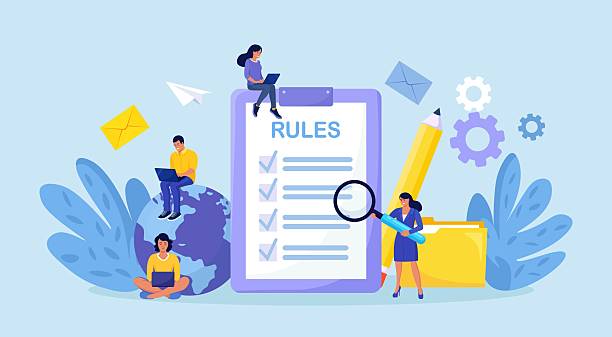
Successful custom website design in various business sectors narrates inspiring stories that demonstrate the unparalleled power and effectiveness of this approach in achieving strategic goals.
These case studies not only turn theories into practice but also reveal the true potential of custom web platforms in solving complex problems and creating a competitive advantage.
For example, a large manufacturing company facing challenges with complex order management and direct B2B customer interaction, with a custom online sales platform, was able to directly communicate with its customers and optimize complex ordering, production tracking, and shipping processes.
This website not only helped them multiply their sales but also provided valuable data for market analysis, customer needs, and continuous improvement of products and services.
Another example could be a technology startup operating in the FinTech sector.
This startup, with a unique service website, provided a very simple yet powerful user interface that allowed users to easily manage complex financial matters.
This website, emphasizing security and ease of use, led to rapid user acquisition and explosive growth, quickly establishing its position in the market.
Also, a large educational center looking to offer online courses with advanced interactive features, through custom website design, created a platform that included live chat rooms, interactive quizzes, an advanced educational content management system, and a personalized user panel for each student.
This platform revolutionized the learning experience and significantly increased enrollment numbers.
In all these cases, purposeful web design, specifically focusing on the precise needs of the business and its users, has been able to bring about results beyond expectations.
These case studies show how investing in specific website designs not only leads to improved appearance and performance but can also act as a catalyst for digital transformation, achieving strategic goals, increasing market share, and improving customer satisfaction.
These examples prove that with precise planning, selecting the right development team, and focusing on unique needs, significant online success can be achieved, and brand value can be considerably increased.
The Future of Custom Website Design and Trends
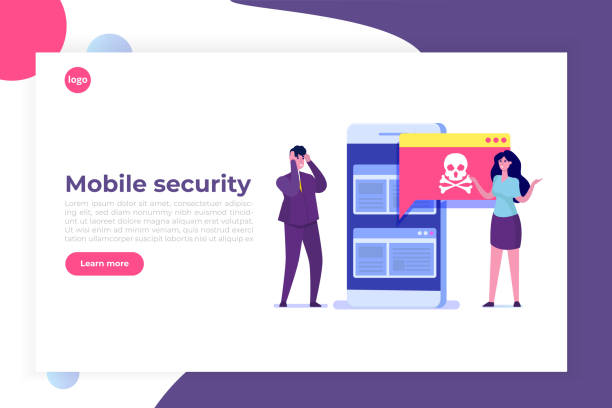
The future of custom website design is rapidly evolving, and with the emergence of new technologies, changing user expectations, and continuous advancements in AI and data mining, we will witness exciting trends that will revolutionize the online experience.
One of the most important trends is the increased focus on extreme and dynamic personalization; websites, using user data, machine learning, and AI, will be able to offer completely unique experiences for each visitor, from suggested content to adaptive user interfaces.
This level of personalization deepens engagement and increases customer loyalty.
Also, the importance of web accessibility for all individuals, including those with disabilities, is increasing, and future websites must be fully inclusive in this regard and adhere to WCAG (Web Content Accessibility Guidelines) standards.
Voice commerce and Web 3.0, built on blockchain technology, decentralization, and virtual/augmented reality, also open new horizons for website development, where users will have greater control over their data, identity, and interactions, and can directly participate in the digital economy.
These developments are driving websites towards self-sufficient and user-centric platforms.
Furthermore, the emergence and maturation of No-Code and Low-Code website development tools, alongside custom website development (which will remain essential for complex and specific needs), provide businesses with more powerful tools to respond more quickly to market needs and technological changes.
Progressive Web Apps (PWAs) platforms that offer a native-like application experience in the browser, and the use of Dark Mode designs to reduce user eye strain, are also important trends.
These trends indicate that building a unique digital platform will continue to play a central role in online strategies, but with more advanced, intelligent, and interactive tools and capabilities.
The future of websites is moving towards immersive, intelligent, and highly interactive experiences that blur the lines between reality and digital space, creating countless opportunities for businesses ready to innovate and invest in advanced technologies.
Frequently Asked Questions
| Question | Answer |
|---|---|
| What is custom website design? | Custom website design means building a website from scratch based on a business’s specific needs, goals, and branding, without using ready-made templates. |
| What are its advantages over ready-made template sites? | Its advantages include complete flexibility, high scalability, better SEO optimization, increased security, unique design, and optimal performance. |
| Which businesses should opt for custom design? | Businesses with specific needs, strong branding, innovative ideas, or a need for complex and customized functionalities should use this method. |
| What are the stages of designing a custom website? | The stages include needs analysis, UI/UX design, back-end and front-end coding and development, testing and debugging, launch, and continuous support. |
| Is custom website design more expensive? | Yes, it usually has a higher initial cost compared to ready-made template sites, but due to its flexibility, scalability, and long-term returns, it is economically justified in many cases. |
| How long does custom website design take? | It depends on the complexity and required features, but it usually takes from a few weeks to several months. |
| What impact does custom design have on site SEO? | Custom design allows for the implementation of an optimal structure, high loading speed, clean coding, and full customization for search engines, which has a very positive impact on SEO. |
| How is scalability in custom websites? | Custom sites are designed for scalability from the ground up, meaning adding new features, scaling for high traffic, or integrating with other systems is easily possible. |
| What services are included in custom website support and maintenance? | It includes security updates, bug fixes, regular backups, performance monitoring, and, if needed, development and addition of new features. |
| Is custom website design suitable for startups? | Yes, especially for startups with innovative ideas and unique business models that require a completely custom platform to implement their vision, it is very suitable. |
And other advertising services of Rasaweb Advertising Agency
Smart Direct Marketing: A combination of creativity and technology for user engagement through SEO-driven content strategy.
Smart Advertising Campaign: Professional optimization for customer acquisition using key page optimization.
Smart Customer Journey Map: A quick and efficient solution to increase website traffic with a focus on key page optimization.
Smart Custom Software: A combination of creativity and technology to increase sales through intelligent data analysis.
Smart Direct Marketing: Revolutionize campaign management with attractive UI design.
And over hundreds of other services in internet advertising, advertising consultation, and organizational solutions
Internet Advertising | Advertising Strategy | Advertorials
Resources
? Are you looking for a big leap in the digital world? Rasaweb Afarin Digital Marketing Agency, specializing in SEO, Google Ads, and website design with a modern user interface, is your comprehensive solution for business growth and prominence in the online space.
📍 Tehran, Mirdamad Street, Next to Central Bank, Southern Kazeroun Alley, Ramin Alley, No. 6

